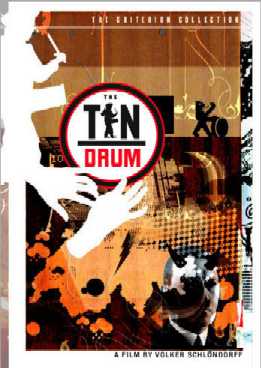|
Reviews of Recent Independent, Foreign, & Documentary Films in Theaters and DVD/Home Video
THE TIN DRUM
This dark fantasy shared the 1979 Palme d'Or with Apocalypse Now and it is easy to see why. It's
also apparent why The Tin Drum has been flustered with limited infamy. It is inspirational as it is
disturbing. Set in 1920s Gdansk, three-year-old Oskar (David Bennett) decides to carry his
striped tin drum with him wherever he goes as a symbol of protest against the continually
hypocritical and dehumanistic middle class. If the drum is ever taken from him, he releases a
scream so horrifying glass literally shatters. Willing himself never to grow up, he remains
physically a little boy. The film's political backdrop is equally complex when his city is taken over by the
Nazis.
The film succeeds largely because of Bennett's performance. He portrays Oskar with an
unsettling clarity rare among child actors. Oskar bears witness to his mother's suicide, and it is
Bennett's ability to mitigate the viewer's horror that makes this scene, as well as the rest of
the film, so painfully watchable. The Tin Drum, however, is not for the casual film fan. In
1997, a fundamentalist group in Oklahoma City prosecuted the film as child pornography, going
so far as stealing copies off of video store shelves. While this claim will seem ludicrous to the
vast majority, the film can come off as shockingly graphic to an audience desensitized only to
violence. DVD Extras: The most enjoyable of the overloaded features is a 21-minute
montage entitled “Volker Schlöndorff Remembers” that features storyboards, on-set photos, and
touching sound bites from the director. Schlöndorff is interesting to listen to here, so it is
surprising that he provides a relatively dry commentary track on both the film and the disc's
collection of odd deleted scenes. The unused ending from the original screenplay is a nice
addition considering most of the other features are either promotional or produced in the
aftermath of the Oklahoma City controversy. Gary D. Rhodes's documentary short, “Banned in
Oklahoma,” is included and covers every inch of the scandal, ultimately reasoning why The
Tin Drum will only resonate more and more as time passes. Michael Belkewitch
|
